Celebrating the Wisdom of Women Shepherds: ATTRA’s She’s Raising Sheep Podcast Series
 Print This Post
Print This Post
By Linda Poole, Regenerative Grazing Specialist
March is Women’s History Month, “an annual observance to highlight the contributions of women to events in history and contemporary society,” states Wikipedia. There couldn’t be a better time to honor the wisdom and accomplishments of women shepherds!
For millennia, women have tended sheep to provide food and fiber for their families and communities. Societies may arise, flourish, and fall, but through it all, humans have constant need for food and shelter. And for something like 10,000 years, sheep have been the wooly wonders providing us with milk, meat, wool, and hides necessary for our comfort and survival.
No disrespect to the concept of Women’s History Month, but when it comes to women and sheep, it’s really not just history. It’s HERstory, and raising sheep is as much about the future as it is about the past. As we face down disruptions to food systems, climate, and biodiversity, well-managed sheep are our allies. With over 1,000 breeds and countless crossbreds of sheep, there’s a site-adapted sheep for nearly every place and purpose. According to Australian scientist Dr. Brad Ridoutt, “The most sustainable food you can eat by my calculations is lamb.” Wool is unmatched for its combination of versatility, wearability, and environmental compatibility, and sheep grazing provides ecosystem benefits important to regenerating our landscapes.
She’s Raising Sheep is ATTRA’s podcast series highlighting women shepherds across and beyond the United States. Episodes feature a dozen of the most intriguing, smart women I know who have built successful businesses around sheep. Why did they decide to raise sheep? How did they start? What barriers did they encounter, and how did they deal with them? What do they have for infrastructure? Is their shepherding profitable?
It’s been my honor to uplift the voices of these wise women as they openly share stories that range from heartwarming to sad, painful to profitable, and often hilarious, at least after the fact. Who has ever had a true heart-to-heart with another shepherd without learning something of value? There’s no telling what gems might come from conversations that start with sheep but end up being about so much more. Sheep talk offers wisdom, humor, and hope along a path toward agricultural resilience and joy.
I hope you’ll listen in to learn and laugh along with me. And while listening, if you know a fascinating female shepherd to feature, drop me a line at lindap@ncat.org. This series will continue as long as there are good stories to tell, and the podcasts will get better with each episode if you chime in with ideas and pointers!
Can’t decide which episode to listen to first? Here are tidbits to help you choose:
Denice Rackley from Indiana raises North Country Cheviots and tells us how she went from city girl to skilled shepherd while having fun and not going broke: “Start with what your advantage is. Every location has its good points…List your advantages and then decide what is the sweet spot for your marketing…Then you can tailor the breed of sheep to meet your market, to meet the best return on investment.” Listen here.
Bev Trowbridge is an agroecologist raising Wiltshire Horns in New Zealand. In accordance with her dedication to farming sympathetically with nature, Bev says: “I’m very keen on managing land using the native breeds which were adapted to farming on that terrain and in that climate because obviously they have traits and attributes particularly suited to that landscape.” Listen here.
Becky Weed raises an ever-evolving flock of long-wool crossbreds in the Gallatin Valley of Montana. In a spectacular landscape that attracts both predators and land developers in large numbers, Becky shares how adaptability is the name of the game: “I was interested in sheep because they were well-suited to a grass-based approach to managing a piece of land. I didn’t have a really large landscape to work with and so it seemed more practical than cattle or bison…I didn’t have much experience, and [shepherding] just seemed like something that was more within reach.” Listen here.
Lani Estill and her family raises Rambouillets on the California-Nevada border. Lani’s sweet spot is in the fiber end of the sheep business, where Fibershed’s Climate Beneficial FiberTM certification boosts her profit and land health: “I wanted to be able to share with children (about) wool, the whole process from sheep to sweater – and realized I probably better be able to do all that stuff. That started me on my journey with fiber.” Listen here.
Janet McNally from Minnesota uses Ile de France genetics to improve her grass-based sheep breeds, the Tamarack and the Tamarack Prolific. One of the most respected sheep producers in the U.S., Janet’s success emerged from decades of dealing creatively with wolves, barberpole worms, drought, and the physical challenges of aging: “We had a pack of 23 wolves move in. . . and we lost 75 lambs total in a period of 10 days…I put 180 ewes inside four rolls of electronet. Well, 180 ewes are going to eat up all the vegetation in that (area) very quickly…so I had to keep moving them. I decided it was better to bottle-feed a few lambs orphaned in the shuffle than it was to just keep feeding them to the wolves.” Listen: Part 1, Part 2.
Teenager Maloi Lannen of Montana is a passionate and knowledgeable climate warrior using profits from her self-published soil health coloring book to build a flock of 100% grassfed sheep. Maloi and her mom Meagan share how they maintain their fifth-generation family ranch through innovative practices that feature regenerative agriculture, land stewardship, low-stress stockmanship (except maybe when lambs escape!), and building interdependent, profitable businesses and communities. Listen here.
Wendy Auzqui, a Wyoming shepherd and world champion stockdog trainer, shares secrets to success: It’s all about our attitudes, our powers of observation and communication, and our willingness to cooperate with rather than battle against nature. Wendy finds challenges, satisfaction, and joy in her work training border collies and helping her husband’s family raise Rambouillets on a sprawling cattle, sheep, and hay ranch. Listen here.
Maryrose Livingston of New York shares lessons learned in her journey from suburban Detroit schoolgirl to being head shepherd and cheesemaker at America’s first certified 100% grassfed, organic sheep dairy in this two-part podcast. Among the topics discussed are evasive grazing to control parasites; the question of nutritional wisdom of sheep; and how raising grassfed livestock is Maryrose’s answer to creating a beautiful life while helping heal the land. Listen: Part 1, Part 2.
Dr. Kathy Soder, an animal scientist and ruminant nutritionist with decades of experience raising sheep in both Montana and Pennsylvania, shares essential information on building a healthy, profitable flock of sheep no matter where you farm. Kathy’s journey with sheep is captured in the two-part podcast and related PDF. Listen: Part 1, Part 2.
Mickey Willenbring raises Navajo-churro and Karakul sheep in Western Oregon. Her life’s journey demonstrates that raising sheep with the right intent and actions can be a powerful way to heal ourselves and our relationship with the Earth. Don’t miss this wide-ranging, deeply thoughtful two-part discussion on life with sheep! Listen: Part 1, Part 2.
Danielle Duni joined NCAT in 2023, after managing the Montana State University sheep flock, to help Wyoming woolgrowers implement climate beneficial practices. Danielle shares her winding career path working with livestock across the Western U.S., and her vision for ranchers “finding that interface where we can all work together to build resilient communities.” Listen here.
Sheridan Rowe Langford is a straight-talking Texas shepherd, dog trainer, and retired crime scene investigator. Sheri raises Navajo-churro sheep (“the mustangs of the sheep world”) with the help of her border collies, Anatolians, and Great Pyrenees. She niche markets luxury sheep milk soaps, raw fleeces, beautiful woven garments, breeding stock, and lamb – and writes with humor and wisdom about it all in books and blogs. Listen here.
Related ATTRA Resources
Growing Hope: Climate and Grazing, featuring Janet McNally, Denice Rackley, and Meghan and Maloi Lannen
Denice Rackley: What Your Stockdog Can Teach You About Livestock
Other Resources
Maloi and Meagan Lannen’s website
Sheridan Rowe Langford’s website
This blog is produced by the National Center for Appropriate Technology through the ATTRA Sustainable Agriculture program, under a cooperative agreement with USDA Rural Development. ATTRA.NCAT.ORG.

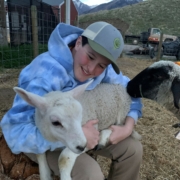
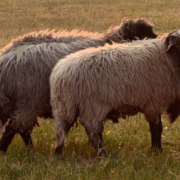
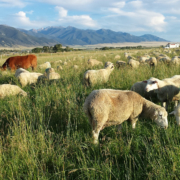
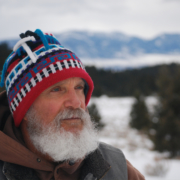
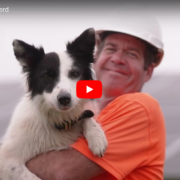
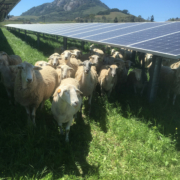
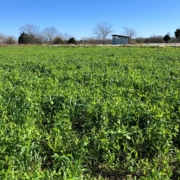
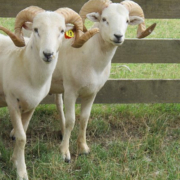
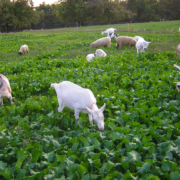
 USDA
USDA